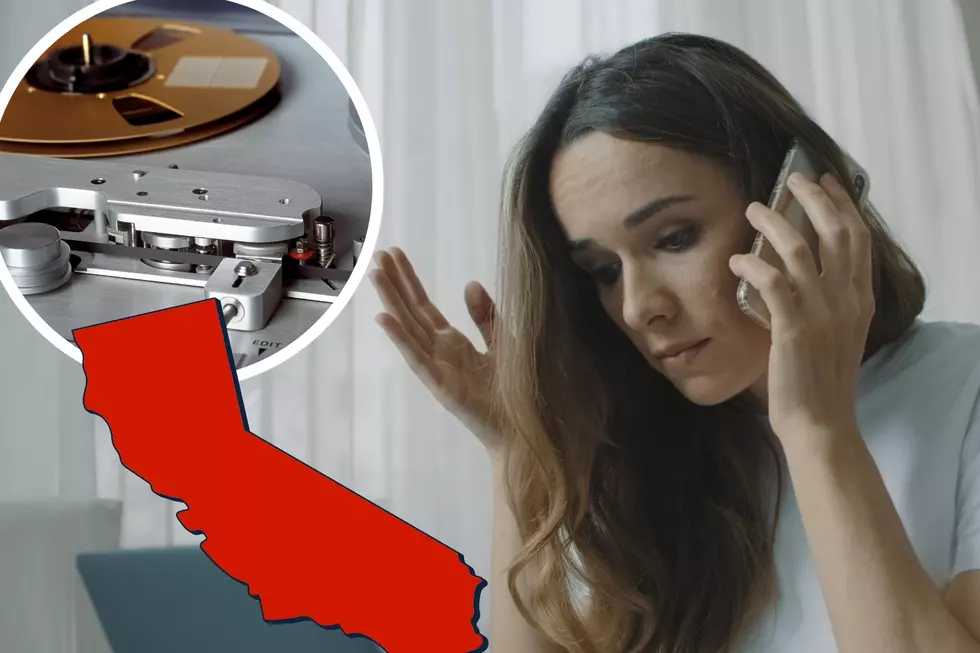
When It Is a Felony to Record a Phone Conversation in California
In today's digital age, the practice of recording phone calls has become increasingly common for a variety of reasons. Whether it's for keeping records of business transactions, ensuring accuracy in customer service interactions, or safeguarding against potential legal disputes, the ability to record a conversation serves as a powerful tool. However, the legality of recording phone calls varies significantly from state to state, making it essential for individuals and businesses alike to understand the specific laws that govern their region. If you illegally record a phone call, you could face significant fines and even a possible felony prison sentence.
California: All Party Consent
In California, recording confidential phone conversations is strictly regulated. For a recording to be legal, all parties involved must give consent. California's definition of "confidential" is broad, encompassing nearly any conversation that isn't expected to be made public. The state mandates that audible notifications be played at regular intervals during a call to inform all parties that the conversation is being recorded, as per California Penal Code 632.
There are instances where you can assume that you will be recorded. You might be under the impression that company conference calls don’t necessarily require consent because there’s no expectation of privacy. That said, it’s best to notify all attendees that the call is being recorded to comply with state law.
Exceptions to California's All-Party Consent
There are some exceptions to the law, including when an individual is recording to protect their safety or the safety of others. The validity of the reasons given for recording in these circumstances would need to be determined by the court.
Is it a Felony To Record Without Permission in California?
Illegally recording a phone conversation in California can be criminally charged as either a misdemeanor or a felony, depending on the circumstances and previous infractions. A first-time offense might be charged as a misdemeanor, with a maximum sentence of a year in prison and up to a $2500 fine. Subsequent violations are more likely to earn a heavier charge, and possibly of felony and lengthier prison sentence.
Comparing Phone Recording Laws of California’s Neighboring States
Idaho: Single Party Consent
Unlike California, recording phone calls in Idaho is governed by a single-party consent rule. This means that only one person involved in the conversation needs to know that the call is being recorded. Essentially, anyone participating in the call can record the conversation without informing the other party. This applies to several scenarios, including workplace communications, meaning that your boss or co-workers are legally allowed to record phone calls with you without your knowledge or consent.
Idaho law strictly prohibits the recording of conversations in which the individual attempting to make the recording is not a participant. In other words, it is illegal to record a conversation between two or more people without being part of that conversation yourself. (No eavesdropping). Violating this regulation is considered a felony under Idaho Code 18-6702, potentially leading to criminal and civil penalties, including fines and imprisonment.
Nevada: All Party Consent
The state of Nevada requires all parties involved in a phone conversation to consent to the recording. This all-party consent rule contrasts with Idaho's single-party consent law. However, Nevada has specific provisions for in-person conversations that differ from its phone call recording laws.
Utah: Single Party Consent
Utah's laws regarding phone call recording are similar to those of Idaho. It is a single-party consent state, meaning that as long as one participant in the conversation is aware of the recording, it is legal. Recording a conversation that you are not a part of is considered a criminal offense in Utah, mirroring the legal stance in Idaho.
Montana: All Party Consent
Montana requires the consent of all parties involved to legally record a phone conversation. This all-party consent requirement aligns Montana more closely with California and Nevada than with Idaho or Utah.
Washington State: All Party Consent
In Washington State, recording a phone conversation without the consent of all participating parties is illegal. This makes it one of the states that, like California, Nevada, and Montana, require all-party consent for the legal recording of phone conversations.
Understanding the laws regarding the recording of phone calls is crucial, especially in a professional setting. While California requires all-party consent, neighboring states have varying requirements, with some states like Idaho that only require single-party consent. It's important for individuals and businesses operating across state lines to be aware of these differences to ensure compliance with local laws. This content is not meant to be a substitute for legal advice.
12 California, Utah and Washington Truck Stops on the "Do Not Stop" List
Gallery Credit: Michelle Heart
Which California Raptors are a Threat to Your Pets
Gallery Credit: Brad - Canva


